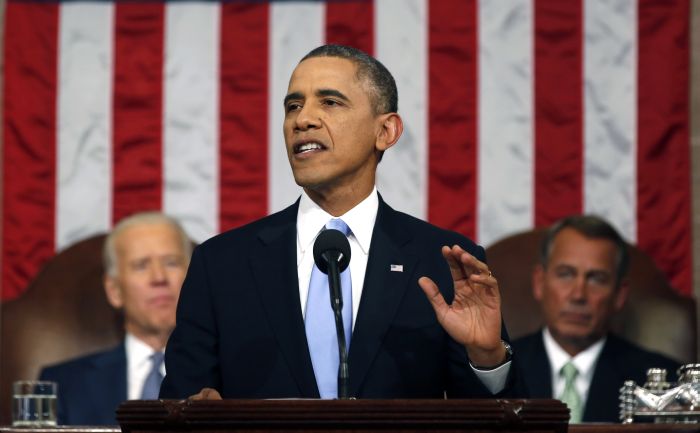Ending the blockade on Cuba will “consolidate” U.S. leadership in Latin America, Obama said in his State of the Union address
In order to “consolidate” U.S. hegemony in the hemisphere, President Barack Obama called for the lifting of the blockade on Cuba at his final State of the Union address Tuesday, saying the “Cold War is over.”
“Fifty years of isolating Cuba had failed to promote democracy, setting us back in Latin America. That’s why we restored diplomatic relations, opened the door to travel and commerce, and positioned ourselves to improve the lives of the Cuban people. You want to consolidate our leadership and credibility in the hemisphere? Recognize that the Cold War is over. Lift the embargo,” he told Congress in Washington, D.C.
Obama’s comments follow a familiar trajectory. Earlier in January, news broke of Washington spending a potential US$30 million on so-called “democracy development” programs in the Caribbean country. Over the years, the U.S. government-funded National Endowment for Democracy (NED) and the United States Agency for International Development (USAID) have come under fire for meddling in the internal affairs of other countries, including Cuba.
Rather than the gung-ho approach of Obama’s predeccesor, George W. Bush, in order to lead the world in the 21st century Obama is calling for a “wise application of military power,” in which foreign assistance is part of U.S. “national security, not charity.” He lauded Washington’s foreign policy efforts in 2015, claiming responsibility for the Colombian peace-process and the supposed defence of Ukrainian “democracy.” The U.S. president also pointed to the “global coalition” of forces and deadly sanctions that allegedly prevented a “nuclear-armed” Iran.
“We can’t try to take over and rebuild every country that falls into crisis. That’s not leadership; that’s a recipe for quagmire, spilling American blood and treasure that ultimately weakens us.”
Pointing to the example of Syria, he urged U.S. partners to “pull their own weight,” further indicating the U.S. administration’s desire to consolidate hegemony through a foreign policy based on checks-and-balances and the funding of groups on the ground, as well as indirect support for allies. He addressed the continued violence tearing the Middle East and South Asia apart, emphasizing the need for a foreign policy militarily focused on the Islamic State group and al-Qaeda, but warned there must be more to U.S. power than “calls to carpet bomb civilians.”
U.S. leadership also came in the form of the Trans-Pacific Partnership, a 5,554-page trade agreement that drew fire from critics around the world for favoring corporations, threatening democracy and accelerating environmental and economic harm.
“With TPP, China doesn’t set the rules in that region, we do,” Obama told Congress. “You want to show our strength in this century? Approve this agreement.”
Obama also branded the Guantanamo Bay prison facility “expensive, … unnecessary and… a recruitment brochure for our enemies,” but offered no date as to when it might be closed. In an ongoing fight with Congress, Obama compromised this year on his campaign promise to close the prison by signing the National Defense Authorization Act, making it harder to transfer prisoners overseas and forbidding their transfer to the United States.
Before the speech, the White House released excerpts of Obama’s address in which he branded the threats United States faces in the 21st century “extraordinary.” Addressing Congress, he warned of “failing states” threatening the world and U.S. national security more than “evil empires.”
“We live in a time of extraordinary change—change that’s reshaping the way we live, the way we work, our planet and our place in the world,” the White House quoted Obama as saying.
“It’s change that promises amazing medical breakthroughs, but also economic disruptions that strain working families. It promises education for girls in the most remote villages, but also connects terrorists plotting an ocean away. It’s change that can broaden opportunity, or widen inequality. And whether we like it or not, the pace of this change will only accelerate.”
Obama was more sentimental when refering to domestic affairs, saying that, “unarmed truth and unconditional love will have the final word.” In the end, though, he favored general statements over tough policy explanations. He briefly touched on race—seeing citizens as “not first and foremost as black or white or Asian or Latino…but as Americans first”—and only gave lip service to the year’s biggest debates: immigration, minimum wage and gun control.
 Escambray ENGLISH EDITION
Escambray ENGLISH EDITION






Escambray reserves the right to publish comments.